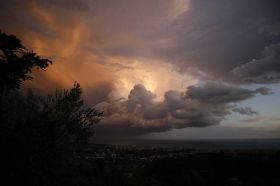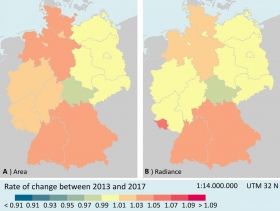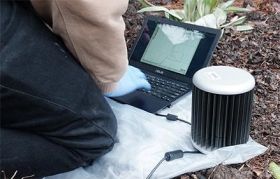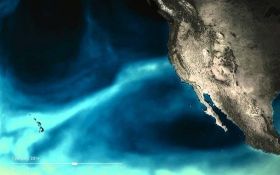
According to the Intergovernmental Panel on Climate Change, temperatures are expected to rise between 2.5 and 10 degrees Fahrenheit over the next century. This warming is expected to contribute to rising sea levels and the melting of glaciers and permafrost, as well as other climate-related effects. Now, research from the University of Missouri suggests that even as rising carbon dioxide levels in the atmosphere drive the climate toward warmer temperatures, the weather will remain predictable.
>> Read the Full Article

The nights in the German federal states („Bundesländer“) has been getting brighter and brighter – but not everywhere at the same rate and with one peculiar exemption: light emissions from Thuringia decreased between 2012 and 2017. This is the result of a recent study by scientists Chris Kyba and Theres Küster from the GFZ German Research Centre for Geosciences together with Helga Kuechly from “Luftbild – Umwelt – Planung, Potsdam”. Kyba and colleagues published the study in the International Journal of Sustainable Lighting IJSL. This week, they updated the maps by including the 2017 data from a satellite-born instrument.
>> Read the Full Article

Soil pathogen testing – critical to farming, but painstakingly slow and expensive – will soon be done accurately, quickly, inexpensively and onsite, thanks to research that Washington State University scientists are sharing.
>> Read the Full Article

Those long, intense plumes of moisture in the sky known as atmospheric rivers are a vital water source to communities along the U.S. West Coast. In their absence, desiccating droughts can develop. But in their presence, they can cause extreme rain and floods that can disrupt travel, cause landslides, and trigger infrastructure failures.
>> Read the Full Article

 ENN
Environmental News Network -- Know Your Environment
ENN
Environmental News Network -- Know Your Environment